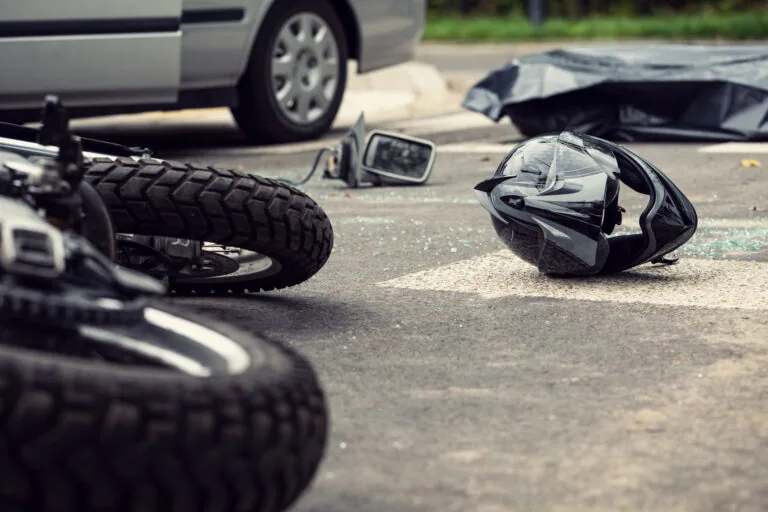Maryland requires most motorcyclists to wear a helmet, and for good reason. Helmets save lives. But what happens if you’re in a crash and weren’t wearing one? Can the insurance company deny your claim? Will your compensation be reduced? Here’s how helmet use—or the lack of it—can affect your motorcycle injury claim.
Maryland’s Helmet Law: What the Law Says
In Maryland, helmet use is mandatory. All motorcycle operators and passengers must wear a DOT-approved helmet and eye protection, unless the bike has a windscreen.
If you weren’t wearing a helmet when your accident happened, that doesn’t mean you don’t have a case. However, it may affect how the insurance company approaches your claim, especially if you suffered a head injury.
Does Not Wearing a Helmet Mean You’re At Fault?
Here’s the important part: not wearing a helmet doesn’t make you at fault for the crash itself. Liability for a motorcycle accident is based on who caused the collision, not what the rider was wearing.
For example, if a distracted driver made an illegal left turn and struck your motorcycle, they’re still at fault—even if you weren’t wearing a helmet. Helmet use doesn’t excuse reckless driving or negligent behavior.
That said, helmet use may come into play when determining how much compensation you receive, particularly for head or facial injuries.
The Contributory Negligence Rule in Maryland
Maryland is one of the few states that still follows a pure contributory negligence rule. This means if you’re found to be even 1% at fault for your injuries, you can be barred from recovering any damages.
So what does that mean for helmet use?
Let’s say you suffered a traumatic brain injury in a crash. If you weren’t wearing a helmet, the other side may argue that your injury wouldn’t have been as severe if you had been. They’re not arguing about fault for the crash—they’re arguing that you contributed to the extent of your injuries.
This is where things get complicated—and why you need a legal team that knows how to push back against these tactics.
The Role of Medical Experts and Evidence
Suppose your claim involves a head or facial injury, and you weren’t wearing a helmet. In that case, the insurance company may try to reduce or deny compensation by claiming you made your injuries worse. But they’ll need to prove that with evidence, not just assumptions.
We often work with:
- Medical professionals who can explain your injuries
- Accident reconstructionists who analyze the cause of the crash
- Helmet safety experts who clarify whether a helmet would have made a difference
In many cases, the injury would have occurred even with a helmet. Other times, the injury had nothing to do with the helmet at all, such as broken bones, spinal trauma, or internal injuries.
If You Were Wearing a Helmet, Use That to Your Advantage
If you were wearing a helmet at the time of the crash, make sure that’s documented in the police report, medical records, and your own statement. It helps establish that you were taking safety seriously, which strengthens your case, especially if you’re up against an insurance adjuster trying to paint motorcyclists as reckless.
Don’t Assume You Don’t Have a Case
Many riders hesitate to call a lawyer if they weren’t wearing a helmet. Don’t let that stop you. You still have rights under Maryland law, and you may still be entitled to compensation.
At McGowan & Cecil, we’ve helped riders with all kinds of injury claims—helmet or not. We’ll look at the facts, bring in the right experts, and fight to protect your interests from day one.
Talk to a Motorcycle Injury Lawyer in Maryland
If you’ve been injured in a motorcycle accident in Laurel or anywhere in Maryland, don’t try to handle the insurance company alone. Contact McGowan & Cecil for a free consultation. We’ll review your case, explain how helmet use may impact your claim, and work to get you the compensation you deserve. You don’t pay us unless we win.

